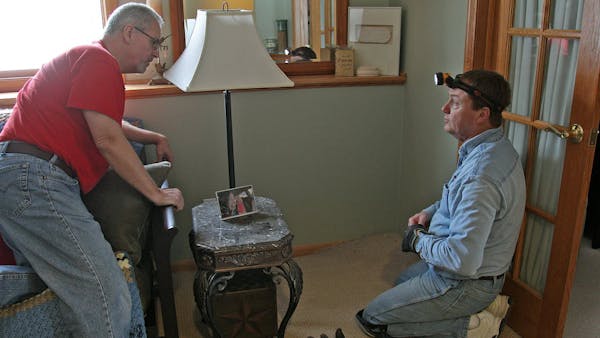Too many Minnesotans unknowingly live in houses with dangerous levels of radon, according to state health officials who are pushing legislation that would require more disclosure about the deadly gas during home sales.
The "Radon Awareness Act" would require sellers to provide information outlining the health risks of radon, while encouraging buyers to conduct a radon test before closing on a house or moving in.
Minnesota has some of the nation's highest indoor levels of radon, the second-leading cause of lung cancer, but health officials worry that many homeowners and home buyers remain unaware of the risk despite years of public health efforts.
"We feel it has good potential to increase radon testing and mitigation in Minnesota," said Daniel Tranter, a supervisor at the state Health Department's indoor air unit. "We feel it's a good opportunity to include [a test] in the home inspection."
The proposal is similar to a law adopted in Illinois several years ago. Some estimates there showed that less than 10 percent of real estate transactions included a radon test, according to Gloria Linnertz, an Illinois radon activist who lost her husband to cancer.
Now, about 40 percent of transactions involve the test, she said.
The Minnesota proposal, introduced earlier this month, is sure to draw concerns from some in the real estate industry because additional disclosure requirements have the potential to introduce hurdles that may complicate a deal.
Paul Eger, chief lobbyist for the Minnesota Association of Realtors, said state rules already require sellers to disclose factors that could affect someone living in the home. They include environmental concerns, such as radon, mold, lead paint or asbestos. He said the standard disclosure form is already almost 10 pages long.
"We do have concerns of starting a list of individual items in statute," Eger said.
Proponents of more disclosure aren't so sure the current system is serving consumer interests adequately. The bill would require a more-clear disclosure by the sellers about whether they have ever tested for radon.
More than 40 percent of Minnesota residential radon tests reviewed recently by the Star Tribune showed levels above the federal action level, which calls for mitigating the home to make it safe.
"It's a major concern to people's health," said Rep. Carolyn Laine, DFL-Columbia Heights, who is the lead author of the bill. "This is a simple way to bring it to people's consciousness."
Genna Porter, a Realtor in Minneapolis, said she considers educating her clients about radon risk a moral and professional obligation. About half her buying clients take her advice to conduct a radon test during the inspection process. She said she has never seen it squelch a deal. High radon levels can be addressed by mitigation systems that are similar to other repairs covered by sellers, she said.
"The fix is fairly inexpensive," she said. "I don't think it would rock the industry that much."
A second bill at the Legislature would flatly require a radon test before a home sale is completed.
That bill was introduced by Rep. Paul Anderson, R-Starbuck, who said his wife lost a dear friend last September who died at age 49 from lung cancer. She didn't smoke, and the home she lived in for more than a decade later tested with high levels of radon.
When he and his wife read a Star Tribune article earlier this month about radon risk in Minnesota, he decided he had to do something. He said he thinks his proposal is a long shot but added: "I just want to try to heighten consumer awareness of the problem in Minnesota. If the best we can do right now is give them additional information, then so be it."
Brad Schrade • 612-673-4777
Finding an apartment may be easier for California pet owners under new legislation
AP Decision Notes: What to expect in Pennsylvania's presidential and state primaries

